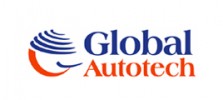Filter interviews by
Gayatrishakti Paper & Boards Mechanical Maintenance Engineer Interview Questions and Answers
Gayatrishakti Paper & Boards Mechanical Maintenance Engineer Interview Experiences
1 interview found
I applied via Approached by Company and was interviewed before Dec 2021. There were 2 interview rounds.

(2 Questions)
- Q1. Experience and skills
- Q2. Goals to you are achieve
Interview Preparation Tips
Give your best during interview and job
Top trending discussions






Interview questions from similar companies
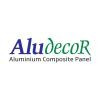
Mechanical Maintenance Engineer Interview Questions & Answers
Aludecor Laminationposted on 30 May 2022
I applied via Naukri.com and was interviewed in Apr 2022. There was 1 interview round.
(1 Question)
- Q1. What is the Extrusion process
- Ans.
Extrusion process is a manufacturing process that involves forcing material through a die to create a specific shape or profile.
Material is heated and forced through a die to create a continuous profile.
Common materials used in extrusion include metals, plastics, and food products.
Examples include extruding plastic pipes, aluminum window frames, and pasta shapes.

Mechanical Maintenance Engineer Interview Questions & Answers
Ralson Tyres Limitedposted on 11 Aug 2023
I applied via Campus Placement and was interviewed in Jul 2023. There were 4 interview rounds.

(1 Question)
- Q1. Types of engine and whatis that
- Ans.
Types of engines include internal combustion engines, steam engines, and electric engines.
Internal combustion engines: gasoline, diesel, rotary, etc.
Steam engines: used in locomotives, ships, and industrial settings.
Electric engines: used in electric vehicles, trains, and some aircraft.
(1 Question)
- Q1. About your life and your family .
(1 Question)
- Q1. About your knowledge test

Electrical Engineer Interview Questions & Answers
Dhoot Transmissionposted on 18 Apr 2022
I applied via Walk-in and was interviewed before Apr 2021. There were 2 interview rounds.

(2 Questions)
- Q1. Basic electrical engineering
- Q2. Transmission line transformer electrical wiring etc
Interview Preparation Tips
I am diploma engineering student in final sem in indore city svp group pls sir I am very interested electrical working job on
Dhoot transmission my first choice?

Maintenance Engineer Interview Questions & Answers
Aludecor Laminationposted on 19 Dec 2022
I applied via Job Portal and was interviewed in Nov 2022. There were 2 interview rounds.

(3 Questions)
- Q1. Definition and used of Preventive maintenance?
- Ans.
Preventive maintenance is a proactive approach to maintenance that involves regular inspections and repairs to prevent equipment failure.
Preventive maintenance involves scheduling regular inspections and repairs to prevent equipment failure
It helps to reduce downtime and increase equipment lifespan
Examples include changing oil in a car, cleaning air filters in HVAC systems, and inspecting machinery for wear and tear
It ...
- Q2. Use of thrust bearing?
- Ans.
Thrust bearings are used to support axial loads and prevent rotational motion.
Thrust bearings are designed to handle axial loads and prevent rotational motion.
They are commonly used in applications such as automotive transmissions, machine tool spindles, and aircraft engines.
Thrust bearings can be classified into different types such as ball thrust bearings, roller thrust bearings, and tapered roller thrust bearings.
Th...
- Q3. Type of gear and used?
- Ans.
Different types of gears are used depending on the application, such as spur, helical, bevel, worm, etc.
Spur gears are used for low-speed applications and have straight teeth that run parallel to the axis of rotation.
Helical gears are used for high-speed applications and have angled teeth that run perpendicular to the axis of rotation.
Bevel gears are used for changing the direction of rotation and have cone-shaped teet...
Interview Preparation Tips
Company is very good and progress

Mechanical Engineer Interview Questions & Answers
Aludecor Laminationposted on 18 Mar 2022
(1 Question)
- Q1. Related to be crane & utility
Interview Preparation Tips

Mechanical Engineer Interview Questions & Answers
Aludecor Laminationposted on 18 Mar 2022
I applied via Approached by Company and was interviewed in Feb 2022. There was 1 interview round.
(1 Question)
- Q1. Related to be crane and extrusion.
Interview Preparation Tips

Electrical Engineer Interview Questions & Answers
Ralson Tyres Limitedposted on 30 Nov 2022
I appeared for an interview in May 2022.
(1 Question)
- Q1. Technical field related questions asked
(1 Question)
- Q1. Asking family background , previous company details
(1 Question)
- Q1. In Final round company M.D asked questions
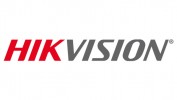
Service Engineer Interview Questions & Answers
Prama Hikvision Indiaposted on 25 Jan 2021
I applied via Naukri.com and was interviewed in Aug 2020. There were 4 interview rounds.
Interview Questionnaire
2 Questions
- Q1. What's is PNP transistor, how to use multimeter, how to trace a circuit, mount unmount components on pcb etc
- Ans.
PNP transistor is a type of bipolar junction transistor. Multimeter is used to measure voltage, current and resistance. Tracing a circuit involves identifying the path of current flow. Mounting and unmounting components on PCB involves soldering and desoldering.
PNP transistor is a three-layer semiconductor device with emitter, base and collector regions.
Multimeter can be used in different modes such as voltage, current...
- Q2. Computer knowledge must
Interview Preparation Tips

Production Engineer Interview Questions & Answers
Prama Hikvision Indiaposted on 17 Feb 2022
I applied via Company Website and was interviewed in Jan 2022. There were 2 interview rounds.

(6 Questions)
- Q1. Share details of your previous job.
- Q2. What is your family background?
- Q3. Why should we hire you?
- Q4. What are your salary expectations?
- Q5. What are your strengths and weaknesses?
- Q6. Tell me about yourself.
Interview Preparation Tips
- 7Qc
- Manpower Planning
- Production
- Kaizen Implementation
- 5s
- 7watege
- Daily Production Planning
- OEE
- Redbin Analysis
Gayatrishakti Paper & Boards Interview FAQs
Tell us how to improve this page.
Interview Questions for Popular Designations
- Mechanical Maintenance Fitter Interview Questions
- Maintenance Engineer Interview Questions
- Mechanical Maintenance Technician Interview Questions
- Mechanical Maintenance Supervisor Interview Questions
- Manager Mechanical Maintenance Interview Questions
- Electrical Maintenance Engineer Interview Questions
- Maintenance Manager Interview Questions
- Mechanical Maintenance Foreman Interview Questions
- Show more
Gayatrishakti Paper & Boards Mechanical Maintenance Engineer Interview Process
based on 1 interview
Interview experience
Interview Questions from Similar Companies
Fast track your campus placements
|
Shift Incharge
7
salaries
| ₹1.7 L/yr - ₹3.6 L/yr |
|
Executive Accountant
6
salaries
| ₹1.6 L/yr - ₹3.8 L/yr |
|
Store Officer
5
salaries
| ₹2.2 L/yr - ₹2.5 L/yr |
|
IT Executive
5
salaries
| ₹3 L/yr - ₹4.3 L/yr |
|
ETP Chemist
4
salaries
| ₹1.2 L/yr - ₹2.2 L/yr |

Dhoot Transmission
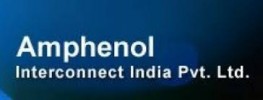
Amphenol Interconnect

Prama Hikvision India
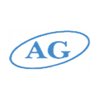
Ag Industries
- Home >
- Interviews >
- Gayatrishakti Paper & Boards Interview Questions >
- Gayatrishakti Paper & Boards Mechanical Maintenance Engineer Interview Questions
